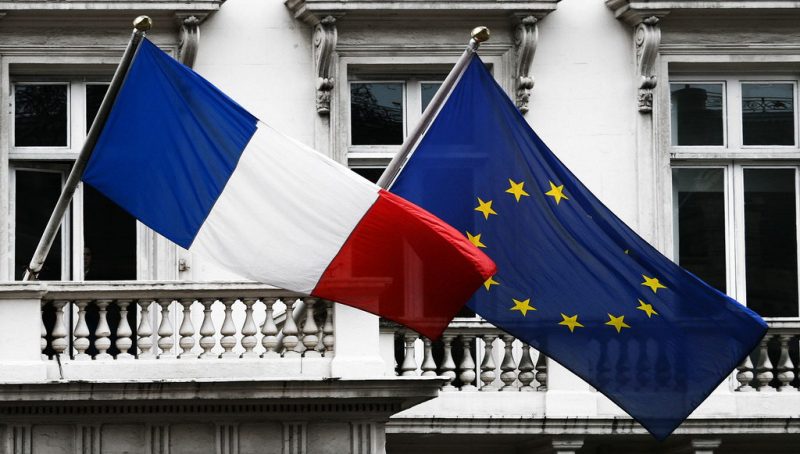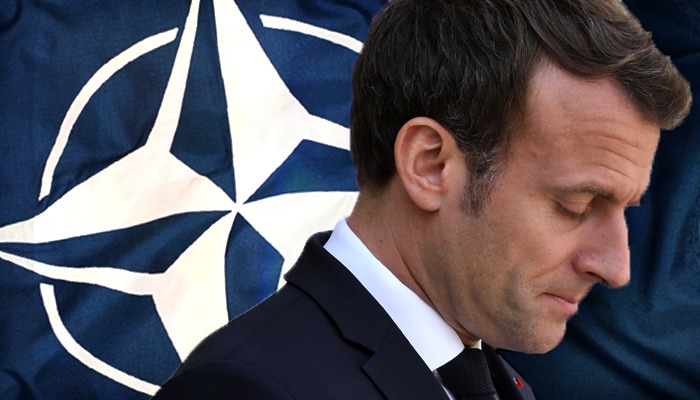- What do you think about French President Emmanuel Macron’s recent statement about NATO being “brain dead”?
Emmanuel Macron’s comments must be put into context. He highlighted the symptoms of the NATO crisis, namely the lack of coordination between the United States and Europe, and he gave as an example of this problem the unilateral behaviour of Turkey (which is a member of the organisation) in Syria following the withdrawal of American troops. Emmanuel Macron pointed out that this American decision was taken without any coordination.
But we need to take a step back even further. The world, since the fall of the Berlin Wall, has changed, the geopolitical balance of power has evolved with the rise of Russia and China. Donald Trump noted this radical paradigm shift since the American presidential campaign in 2016. On closer examination, Emmanuel Macron follows Donald Trump on this issue.
And maybe Macron wants to take advantage of the American disengagement to take the leadership of a European military force to replace NATO.

Army.mil
- Is it possible that NATO will dissolve completely? If so, what is a possible timeframe for this to occur?
It is possible that NATO may be dissolved, but it is impossible at this time to announce with certainty that such an event will take place, or when.
There are powerful forces that want to maintain this organization, starting with the deep American State and Germany, which has not been a military power for a long time, and which would therefore find itself in a weak position near its neighbour, France, which still has an army and nuclear weapons.
Of course, Germany has military-industrial projects with France: the European Defence Fund; funding, from 2021 onwards, to launch joint projects, such as the European fighter aircraft (the model of which was presented at the Paris Air Show in June 2019) and a Franco-German tank which should be operational by 2035.
But Germany is used to playing on several fronts, and it is not ready to abandon NATO in favour of France.
France is militarily autonomous, Germany is not.
If France were to leave NATO, it would harm this American organisation and could even lead to its end. And so, France could take Europe’s geopolitical leadership (Germany could not oppose it), break away from the logic of confrontation against Russia and stabilize relations with Eurasia.

Wikipedia
- What are the reasons for NATO’s decay ?
NATO is in an existential crisis because it is increasingly apparent that some member States are acting in their national interests, which cannot always converge with those of their allies. This begins with the United States, which leads NATO and uses it as a strategic tool to the detriment of its allies. The worst thing is that the American President, Donald Trump the isolationist, himself suggested several times in 2018 that the United States must withdraw from NATO.
This desire to withdraw from NATO, like the disengagement from theatres of war, is explained by the renunciation of the very costly imperialism that the United States can no longer afford. But the American deep state is opposed to Trump.
Also we must keep in mind that the priority of the Americans is no longer the control of Europe, because the geopolitical and economic centre of gravity has shifted towards Asia.
- Might NATO be replaced by a similar political formation? Are there any real alternatives to NATO? Perhaps some kind of pan-European security system?
There is a Common Security and Defence Policy (CSDP), the objectives of which are defined in Article 42 of the Treaty on European Union, which stipulates that it may use civilian and military means outside the Union « to maintain peace, conflict prevention and the strengthening of international security in accordance with the principles of the United Nations Charter » and states that the CSDP pursues the objective of gradually defining a « common defence policy for the Union… It will lead to a common defence, once the European Council, acting unanimously, has decided so ».
However, the European Union does not have its own army, and the civilian and military capabilities able to mobilise are made available to it by the Member States when a mission is launched by the Council.
This system, combined with the European Defence Fund, may be the one Emmanuel Macron wants to develop to replace NATO in Europe.

Army.mil
- In recent years, populism has been sweeping Europe. Is the return to a national state-based system with independent security and defense possible?
The populist wave aside, the proper functioning of a State in military, legal, monetary and foreign policy terms is made impossible by supranational political systems such as NATO, the European Union and the European Central Bank. Every day, we see the dysfunctions caused by this globalist system, to such an extent that certain ideologues and politicians like Macron, who come from this system, come to criticize some of its perverse effects.
Obviously, the populist wave, the popular protests, confirm the need to return to the national level, to the state level. And these movements of popular revolt will undoubtedly contribute, in different ways in different countries, either to sweeping away some of the political leaders or, with realism helping, to bringing some of them to their senses.
- Why do Macron’s statements seem so chaotic and inconsistent? Why does his position flip-flop with no apparent logic? Some are calling his outlook ‘liberal populism.’
Emmanuel Macron was brought to power by the banks, he is a former Rothschild employee. Behind him he has two networks that support him, the finance network and the LGBT network (lesbian, gay, bisexual and transgender). He is an economic liberal and a libertarian in terms of morals.
But he has no geopolitical doctrine, from this point of view, he is a virgin and is therefore in a position to rapidly change his views in the field of foreign policy.
His statements seem contradictory because his foreign policy and his domestic policy are put on the same level.
In domestic politics, Macron has not changed, he is still in a logic of economic crushing and brutal repression of the French people, and favoring the richest. His domestic policy is conditioned ideologically, but also sociologically. His basic electorate (about 20% of the population) is that of the liberal and libertarian bourgeoisie. He is ontologically and structurally condemned to conduct this policy against the people.
It is in foreign policy that he evolves according to real power relations. At the beginning of his mandate, he was virulently anti-Russian and in ecstasy in front of the Americans. The American disinterest in Europe, the cooling of relations between Donald Trump and European leaders and Russia’s military and diplomatic victories, have gradually forced Emmanuel Macron to reconsider his positions, to the point of talking about cooperation with Russia.
These are major historical and geopolitical trends that go far beyond the little person of Macron. Historical backgrounds orient, even against their own wishes, the most ideological of political leaders.

















Leave a Reply